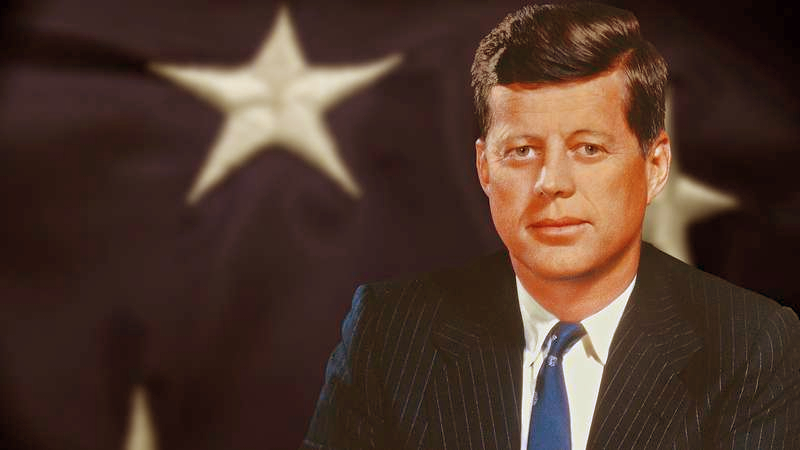
John F. Kennedy was the 35th President of the United States, best known for the Nuclear Test-Ban Treaty and the Alliance for progress.
John Fitzgerald Kennedy was born on May 29, 1917 in Brookline Massachusetts to Joseph P. Kennedy, Sr. and Rose Fitzgerald. He belonged to a wealthy and influential political family. His father was a banker and was later appointed as the first chairman of the US Securities and Exchange Commission (SEC). His mother was a socialite and philanthropist.
As a child, he attended private schools as the Canterbury School. In 1935, he enrolled at Princeton University but dropped out due to illness. The next year, he moved to Harvard.
During his time at Harvard, he took an interest in political philosophy. He wrote a thesis in 1940 called the Appeasement at Munich. It was well received and soon turned into a book named Why England Slept. The book was a bestseller.
Kennedy joined the US Navy in 1941. In just a few years, he became a lieutenant. In 1943. Kennedy’s boat was attacked by a Japanese warship. Kennedy showed great bravery when he rescued his crewmen and took them to a nearby island. For his courage, Kennedy was awarded the Navy and Marine Crops Medal and the Purple Heart Medal. After his complete recovery Kennedy was released from duty.
Kennedy then began his political pursuits. In 1945, he started to work as a special correspondent for Hearst Newspaper. It proved to be fruitful and also brought him the public domain. It was his father supported him in his election to the US Congress in 1947. For the next six years, Kennedy worked as a congressman, and then became a US Senator in 1953.
Kennedy’s time at the Senate was hard. He had major health issues, which troubled him most of his life. He took many leaves of absence from the Senate. During his leaves, Kennedy worked on his book titled Profile in Courage. The book became a bestseller and won him a Pulitzer Prize. Even though he loved to worked as a senator, he was more interested in the larger picture he desired to solve country-wide problems and international challenges.
In 1960, Kennedy fought for a presidency against the then Vice President Richard Nixon. He won the presidential elections by a narrow margin. It was the closest win the history of elections. Kennedy became the 35th president of the United States, and the first president born in the twentieth century. The Kennedy presidency had a few significant events such as the building of the Berlin Wall in Germany, the Bay of pigs invasion and the Cuban Missile Crisis.
During his presidency, he helped Cuban revolutionaries attack the communist Cuban leader Fidel Castro. The main motive of this program was to enable Cuban people to remove Castro from power. However, the plan failed as most of the attackers were either killed or captured. This event was named the Bay of Pigs invasion after the place where the invasion took place. Kennedy then formed a ‘Special Group’ and General Edward Lansdale was appointed as the advisory of the group. Lansdale’s strategies were aimed at the removal of the Castro government.
Another major event in Kennedy’s life as the president was the Cuban Missile. Around 1962, the United States discovered the Soviet Union’s secret missile base in Cuba. It was a big threat for the US government, as the missiles could strike America anytime and it would have led to a nuclear war. Kennedy understood that if the US did not strike first, there would be a lot of damage due to the close range of the atomic weapons.
Kennedy solved the missile issues thoughtfully. To keep the missile out of play, they made a compromise in which Soviet Union agreed to dismantle their bases. The US also agreed never to invade Cuba and removed their missiles from turkey.
In 1963, Kennedy introduced the Civil Rights bill. It was made for minorities and gave them access to public schools and protected their voting rights.
Kennedy married Jacqueline Bouvier in 1953. The couple had four children.
Kennedy was shot by Lee Harvey Oswald and died on November 23, 1963 while he was on a political tour in taxes.
